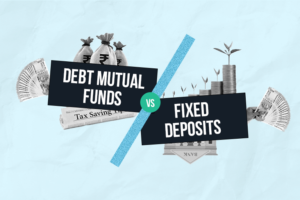
A corporate enterprise has to take care of multiple processes and tasks, from crucial business R&D to employee payroll management.
Most business activities require immediate funding. Sometimes, an enterprise might not have the necessary funding to meet urgent business expenses. It does not mean business activities must be stopped due to a shortage of funds.
An enterprise can continue operations by taking a business loan. However, enterprises must know that a business loan comes with an interest rate. The interest rate gets added to every EMI of the business loan. Read on to understand the vital factors in deciding business loan interest rates in India.
Factors impacting the interest rate for a business loan in India
One might wonder why to consider the interest rate when applying for a business loan in India. The aim must always be to search for a low-interest business loan. When the interest rate is high, a business loan becomes expensive.
Here are the factors that impact the interest rate on a business loan in India:
1. Credit score
Lenders check for the creditworthiness of a business when they apply for a loan. If the business owner applies for a loan, their credit score will be considered.
When a business does not have creditworthiness, it is likely to miss out on business loan repayment. Lenders sense a credit risk associated with low creditworthiness. That is why they apply high interest on business loans when their credit score is low.
2. Business type
Some enterprises have a higher risk compared to other businesses. Some enterprises might always be at risk due to the nature of their industry. Lenders do not prefer businesses operating in high-risk industry sectors.
It is why they increase the interest rate when the risk associated with an enterprise is high. Also, the lender might demand additional business loan documents.
3. Business experience
Lenders consider the business vintage before deciding on the interest rate. Usually, the interest rate decreases when the business vintage increases.
Enterprises with more experience are considered financially stable by lenders. Also, they are less likely to default on the business loan.
4. Business plan
Some lenders might ask you to show the business plan before approving a loan. The business plan denotes the foundation of your business and its core goals.
By analysing the business plan, a lender can determine the sustainability of your business. Enterprises with a good business plan might get a loan with low interest.
5. Financial performance and health
You might get a low-interest business loan if your enterprise is financially stable. Firms having pending debts, loans, and other financial obligations might find it hard to secure a business loan.
When firms aren’t economically stable, they might miss out on business loan EMIs. Since there is a risk of default associated with such firms, lenders tend to increase the interest rate on loans.
6. Turnover of the business
A lender will check the enterprise’s annual turnover before offering a loan. To secure a business/SME loan, an enterprise must have an annual turnover of Rs 10 lakhs or more.
7. Profit amount
Before offering a business loan, the lender will check profit/loss statements for the past few years. A business continuously running at a loss might not repay the business loan. The lender tends to increase the business loan interest rate in India in such a case.
8. Credit history
All past EMI payments of a business will be checked before offering a loan. If you have paid past loans timely, you might be eligible for a low-interest rate on business loans.
9. Relationship with the loan provider
If your business has a good relationship with a lender, you might be asked for minimal business loan documents. Also, the lenders might trust you and apply a low interest on the business loan.
Conclusion
Business loans in India come with different interest rates. New-age NBFCs like SMFG India credit are the ideal choice for enterprises looking for affordable business loans.
One can apply for small unsecured business loans on their website and get approval in a day, provided they fulfil their terms.
Frequently Asked Questions
1. What are business loan interest rates?
Business loan interest rates refer to the percentage charged by lenders on the principal amount borrowed for business purposes.
2. Why do business loan interest rates vary?
Several factors influence business loan interest rates, including the borrower’s credit score, the loan term, market conditions, and the lender’s policies.
3. How does my credit score affect the interest rate on a business loan?
A higher credit score generally leads to lower interest rates, as it reflects the borrower’s creditworthiness and reduces the lender’s risk.
4. What role does the loan term play in determining the interest rate?
Shorter loan terms often come with lower interest rates, while longer terms may have higher rates. This is because longer terms pose a greater risk to lenders.
5. How do market conditions impact business loan interest rates?
Economic factors such as inflation, interest rates set by central banks, and overall market trends can influence business loan interest rates.
6. What is the significance of the loan amount in determining the interest rate?
The loan amount can affect the interest rate, with larger loans sometimes qualifying for lower rates due to economies of scale and decreased risk for lenders.
7. Are fixed or variable interest rates better for business loans?
Fixed interest rates remain constant throughout the loan term, providing stability. Variable rates, on the other hand, can fluctuate based on market conditions. The choice depends on your risk tolerance and market outlook.
8. How can a business owner improve their chances of securing a lower interest rate?
Maintaining a strong credit profile, showcasing a robust business plan, and negotiating with multiple lenders can increase the likelihood of securing a lower interest rate.
9. Do different types of business loans have different interest rate structures?
Yes, various types of business loans, such as term loans, lines of credit, and SBA loans, may have different interest rate structures. It’s crucial to understand the specifics of each loan type when considering borrowing options.






